How to Read Nature's Fury Theme 1 (Readers Library): Houghton Mifflin
Must a embankment read be a novel? (If you answered yeah, head hither.) If you answered no please read on for a look at the nonfiction titles we're most excited about this summer. From the history of nutrient to the inner workings of Silicon Valley, from the politics of gardening to how the brain maps itself, in that location's something hither for all manner of reading tastes. These recommendations were compiled by Lit Hub editors Jonny Diamond, Jessie Gaynor, Corinne Segal, and Vanessa Willoughby.
___________________________
JUNE
Jess McHugh, Americanon: An Unexpected U.Southward. History in Thirteen Bestselling Books
(Dutton, June 1)
Nosotros like to remember that culture—be information technology national or regional—is a reflection of the highest echelons of artistic creation, that we are equally worthy of our mythologies as they are of u.s.a.. This is not the instance. As Jess McHugh discovers in this deep swoop into 13 of America'southward nearly endemic books—from farmer's almanacs to dictionaries to cookbooks to etiquette guides—a nation's story is shaped and told from much humbler texts.

Alice Waters, Nosotros Are What We Consume: A Slow Food Manifesto
(Penguin Press, June one)
Since opening Chez Panisse in 1971, Alice Waters has been a kind of living legend in the movement for local food, sustainable agriculture, and seasonal cooking. In her latest work, she recounts scenes from that career that fans of hers will enjoy while championing a "slow food" approach to farming and eating, with an emphasis on regenerative agriculture, biodiversity, and health.
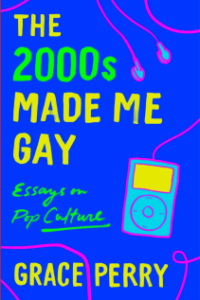
Grace Perry, The 2000s Made Me Gay: Essays on Pop Culture
(St. Martin's Griffin, June one)
Like a lot of queer people, Grace Perry spent her adolescence finding queer subtext in stories about directly people, from Gossip Girl to pop songs and other productions of popular culture. She accounts for those experiences in this series of essays, a collection that's sure to exist painfully and hilariously recognizable for queer millennials who grew up earlier a groundswell of LGBTQ representation in culture.
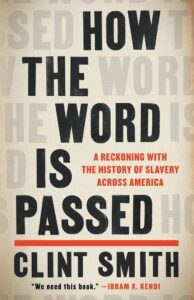
Clint Smith, How the Discussion Is Passed: A Reckoning with the History of Slavery Across America
(Little Brown, June 1)
Equally local governments around the United States seek with ever intensifying fury to deny American children the right to larn the difficult truths at the core of their nation, poet and writer Clint Smith's How the Word Is Passed is a book for this moment. At in one case a deeply researched history of American slavery and a very contemporary look at the grim legacy of its manifold cruelties (and how they are memorialized in evidently sight), every high school senior in the country should have a copy of How the Word Is Passed, the better to understand that "yes, this is who we are."

Carol Anderson, The Second: Race and Guns in a Fatally Diff America
(Bloomsbury, June 1)
As is the case with so many mythic American "freedoms," the right to carry arms—enshrined as information technology is in the Second Amendment—has long been the exclusive privilege of white men. According to renowned scholar Carol Anderson, this is very much by design. Though one needn't look besides far beyond the recent murders of Philando Castile and Alton Sterling to meet that so-called legal gun ownership is not a right—at least in practice—extended to Black Americans, Anderson follows this land's fixation on weaponized liberty back to its founding mythologies, and all the exclusionary rhetoric found therein.
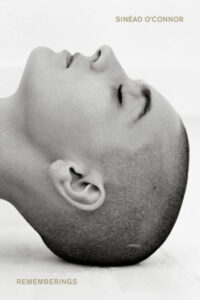
Sinead O'Connor, Rememberings
(HMH, June i)
Sinéad O'Connor has always seemed like a larger-than-life strength of nature, from her early incandescence as the brash, shaven-headed genius backside The Panthera leo and The Cobra, to her international pop mega-stardom (and the controversy that seemed to follow her), and on into the harder years of the early 21st century as she navigated the downslope of all that success. Indeed, it has been a complicated life, simply as this memoir reveals it's also been a life fully lived, with all the magnificent intensity of a true rock 'n' roll icon.
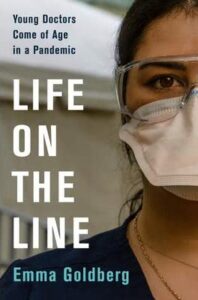
Emma Goldberg, Life on the Line: Young Doctors Come of Historic period in a Pandemic
(Harper Books, June eight)
The coronavirus pandemic hit New York City in total force in the leap of 2020, precisely when the half-dozen subjects of this book were graduating from medical schoolhouse. Emma Goldberg, the journalist who chronicled their experiences for The New York Times, features their stories in more detail here, providing an important business relationship of just some of the doctors who worked under impossible circumstances to save lives and make history.
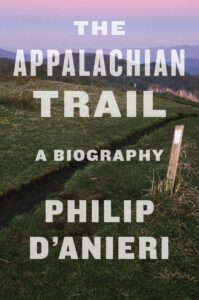
Philip D'Anieri, The Appalachian Trail: A Biography
(Houghton Mifflin Harcourt, June 8)
Millions of people travel some part of the Appalachian Trail every year, from daytrippers to the thru-hikers whose journey becomes a sort of spiritual odyssey. This is the story of the trail itself and the people who built information technology, from those who literally mapped its path to others whose accounts helped solidify its place in the American psyche (looking at you, Pecker Bryson).
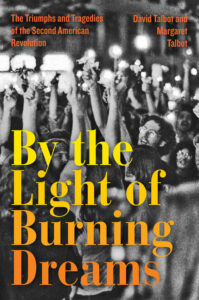
David Talbot and Margaret Talbot, By the Light of Burning Dreams: The Triumphs and Tragedies of the Second American Revolution
(Harper Books, June 8)
The political and social upheaval of the 1960s and 70s is still resonating throughout all corners of American life today. Accomplished journalists David Talbot and Margaret Talbot look at this period through the lives of some of its most important figures, including John Lennon and Yoko Ono, Bobby Seale, Cesar Chavez, Dolores Huerta, and others, supported by extensive inquiry and their own assay.
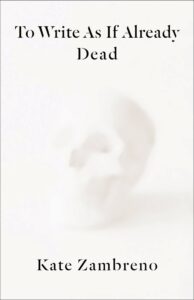
Kate Zambreno, To Write as if Already Expressionless
(Columbia Academy Press, June viii)
While attempting to write a study of To the Friend Who Did Not Save My Life by Hervé Guibert—a work grounded in Guibert'southward experience living with, and eventually dying from, AIDS—Kate Zambreno explores physicality and disappearance through two modes of investigation. The starting time chronicles the story of a lost online friendship; the rest of the book moves from analyses of Guibert'southward work and body to the narrator'south feel of pregnancy and disease. Information technology's a fascinating, ambitious, unforgettable work.
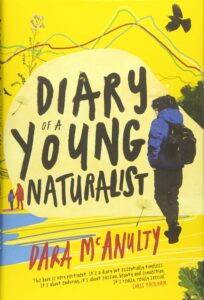
Dara McAnulty, Diary of a Young Naturalist
(Milkweed, June 8)
If planet earth has any risk of surviving the depredations of global capitalism, information technology rests in the intensity and commitment of the younger generations, teenage climate activists like Greta Thunberg and Dara McAnulty. Is that off-white? No. And all the same they carry on. In Diary of a Young Naturalist McAnulty gets at some of the reasons why they're able to maintain faith in the possibility of change as he records his life-giving daily connections to the natural globe over the course of a year in Northern Ireland. Simply non only does McAnulty capture the intimacy of the nature-lover's perspective, he as well conveys what it's like to be a 16-twelvemonth-old boy with autism navigating the infinite complexities of teenage life. (Winner of the Wainwright Prize for UK nature writing.)
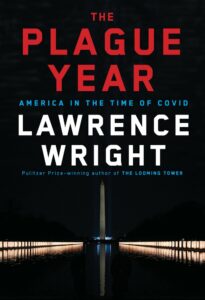
Lawrence Wright, The Plague Year: America in the Time of Covid
(Knopf, June 8)
Earth-altering history is a very hard thing to write about as it's happening, but if anyone tin can pull it off, information technology's Lawrence Wright. The author of The Looming Belfry, Going Clear, and much, much more, Wright brings his generous reportorial middle to this last, long year of our commonage lives, tracing the Covid pandemic from its early stages in China, through the deeply politicized American responses, to the inflow of vaccines. At once broadly historical and deeply personal, The Plague Twelvemonth establishes a high bar for how to document a pandemic.
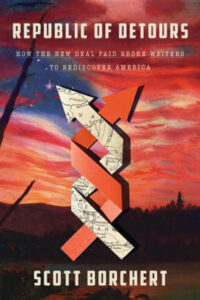
Scott Borchert, Republic of Detours: How the New Deal Paid Broke Writers to Rediscover America
(Farrar, Straus and Giroux, June 15)
Scott Borchert delves into a lesser-known New Deal initiative to create guidebooks to every land of America, which vicious under the Federal Writers' Projection and employed Nelson Algren, Zora Neale Hurston, and Richard Wright, among other literary figures. This history tracks the relationship betwixt a suffering nation and its writers as they endeavored to document the all-time of their country.
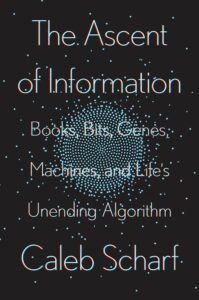
Caleb Scharf, The Ascension of Information: Books, Bits, Genes, Machines, and Life's Unending Algorithm
(Penguin Printing, June 15)
Caleb Scharf advocates for an understanding of data as essential to human being, with an approach that combines biology, computer science, data theory, and other disciplines. With this lens, he examines the role that data will keep to play in our lives going forward—an essential question in the era of digitization.
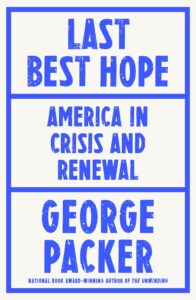
George Packer, Last Best Hope: America in Crisis and Renewal
(Farrar, Straus and Giroux, June 15)
Conversations about America as a "failed state" often take the grade of paw-wringing—how did we get hither—or excoriating the perceived ignorance of one group of people versus another. George Packer's Last Best Hope finds another fashion into the conversation, describing the pervasive injustice and inequality of American life as the result of differences in national narrative. His revealing diagnosis of our national issues is accompanied by suggestions for moving forrard that are grounded in the seeking of mutual values—an important assay for whatsoever time in history, and now in item.
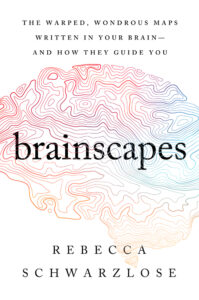
Rebecca Schwarzlose, Brainscapes: The Warped, Wondrous Maps Written in Your Brain–And How They Guide You
(Houghton Mifflin Harcourt, June fifteen)
Take y'all e'er wondered how the encephalon interprets sensory information? Cognitive neuroscientist Rebecca Schwarzlose provides a well-researched debut that examines how the boggling maps of the brain are responsible for memory, imagination, and learning. Brainscapes is a fascinating study of the wonders of homo consciousness.
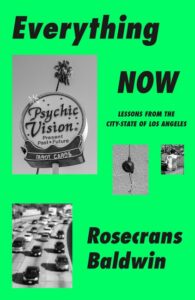
Rosecrans Baldwin, Everything Now: Lessons from the City-State of Los Angeles
(MCD, June fifteen)
Conceiving of Los Angeles every bit a city-state—a sort of world unto itself—Rosencrans Baldwin launches an investigation of its sometimes-surreal world of natural beauty (punctuated by natural disasters), literary luminaries, public personalities, and contradictions of various kinds. The result is a collagistic portrait of ane of the most distinct cultural epicenters of the U.s.a..

Mike Rothschild, The Storm is Upon Us: How QAnon Became a Movement, Cult, and Conspiracy Theory of Everything
(Melville Business firm, June 22)
It is too soon to tell yet whether QAnon volition be a quirky sidebar in the history textbooks of the 22nd century or an unabridged chapter. While we all hope for the sometime, it is nonetheless vitally important to empathise the commonage fabulisms of this shadowy Trump-era conspiracy cult, and how it somehow floated from the murky backwaters of online message boards to the very height of the Republican Party. To do and so, you'd best outset with Mike Rothschild'due south The Storm is Upon Us (because it kind of is).
____________________________
JULY

Jan-Werner Müller, Commonwealth Rules
(Farrar, Straus and Giroux, July 6)
Political philosopher Jan-Werner Müller previously authored What is Populism?, a await at the ways that populism develops among a population and how contemporary society can navigate its effects. Now, with Democracy Rules, he aims at a deeper agreement of democracy by examining the role incertitude plays in a democratic guild.

Ewa Majewska, Feminist Antifascism: Counterpublics of the Common
(Verso, July 6)
Polish philosopher Ewa Majewska looks at the ways that feminist spaces resist the tide of fascism, in particular through the stories of labor movements and other justice movements in Poland and South America. The book also challenges the Western lens that dominates popular analyses of leftist politics in the The states, looking beyond the West for answers to pressing political questions.
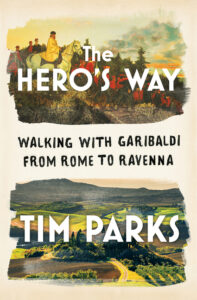
Tim Parks, The Hero'southward Way: Walking with Garibaldi from Rome to Ravenna
(Norton, July 6)
Alarmingly prolific writer/translator/critic Tim Parks is dorsum at it with an immersive travelogue tracing Giuseppe Garibaldi's assuming (some would say foolhardy) 1849 journey past foot across the Italian Apennines. Not just did the father of Italian nationhood pb his garibaldini in their retreat from the French regular army, he did so with his pregnant wife Anita. Parks, himself joined by his partner, Eleonora, recreates the historic journey (without the backdrop of war), keeping one centre on resonances of the past and the other on all the rich, local idiosyncrasies of contemporary Italian life. Every travelogue should begin from a conceit similar this.
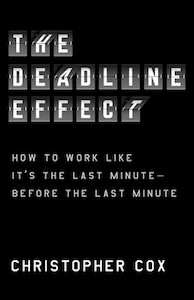
Christopher Cox, The Borderline Effect: How to Work Similar It'due south the Last Infinitesimal—Before the Last Minute
(Avid Reader Press)
Among the many things the concluding year has revealed is how strange the flow of fourth dimension tin can be, particularly when formerly discrete parts of our lives—piece of work and home—go blended into ane, long stressful continuum. In The Deadline Upshot, writer and mag editor Christopher Cox has set up out to better sympathize the way we respond to deadlines, how they tin can at once be stressful and clarifying experiences, and if at that place'southward a way to trick ourselves into the latter without whatsoever of the old.
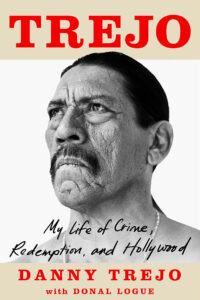
Danny Trejo and Donal Logue, Trejo: My Life of Offense, Redemption, and Hollywood
(Atria, July 6)
Earlier he constitute fame as "Hollywood's favorite bad guy with a center of golden" in his forties, Danny Trejo struggled with childhood abuse and heroin addiction, and spent years incarcerated. Trejo: My Life of Crime, Redemption, and Hollywood details his journey through it all. If anyone has earned the right to a Hollywood memoir, it'southward Danny Trejo. To quote Bookmarks editor Dan Sheehan, "The man has lived a life."
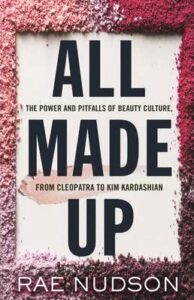
Rae Nudson, All Made Up: The Ability and Pitfalls of Dazzler Culture, from Cleopatra to Kim Kardashian
(Beacon Press, July 13)
Makeup has also often been dismissed equally frivolous (read: feminine), though of course its political, economic, and cultural impact is enormous. In All Made Up, Rae Nudson considers the multifaceted power of makeup through the stories of Cleopatra, Marsha P. Johnson, and more.

Kathryn Kolbert and Julie F. Kay, Controlling Women: What We Must Do Now to Save Reproductive Freedom
(Hachette Books, July xiii)
Kathryn Kolbert and Julie F. Kay, lawyers and advocates for ballgame rights, put the experiences of women and health workers at the center of this account of reproductive justice in America. Their observations are presented hither aslope their writing on ballgame as a human rights upshot and legal strategies for protecting people's ability to obtain it.
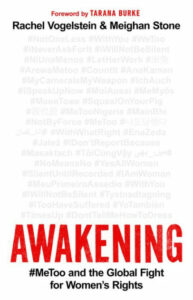
Rachel B. Vogelstein and Meighan Stone, Awakening: #MeToo and the Global Fight for Women's Rights
(PublicAffairs, July 13)
Several years after the #MeToo motion inspired an outpouring of women'southward stories, and a serial of commonage reckonings in fields long dominated by men, Awakening takes stock of the movement in Brazil, China, Arab republic of egypt, Nigeria, Pakistan, Sweden, and Tunisia. Tarana Shush, who founded the motility, authored the foreword for this recent history of the fight for gender equality.

Henry Mance, How to Honey Animals: In a Human-Shaped World
(Viking, July thirteen)
In a world where sustainable habits are a necessity and conservation more than important than ever, Henry Mance asks how humans tin reform their relationship to animals, with input from activists, politicians, and those working in the food industry. Mance investigates how this relationship manifests in a number of human practices, including hunting, the creation of zoos, and our interactions with undeveloped spaces, building a articulate call for change in the way nosotros relate to the natural globe.

Sarah Everts, The Joy of Sweat: The Strange Science of Perspiration
(Norton, July thirteen)
Despite its ubiquity—and biological utility!—there remains a taboo around sweat. The Joy of Sweat considers sweat not just in a biological context (why is sweat salty?), but in a historical one (how did antiperspirant become a multi-billion dollar manufacture?). After all, the only way to fight a taboo is with cold (or hot), difficult facts.
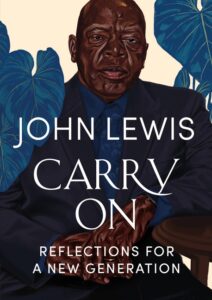
John Lewis, Deport On: Reflections for a New Generation
(Grand Central Publishing, July 13)
Congressman John Lewis, who died in July of 2020, was a proponent of "good, necessary problem." In this collection from the tardily activist and politician, Lewis offers timeless advice for present and futurity generations. Carry On, the effect of conversations with his editor at Thou Primal, Gretchen Immature, immortalizes the wisdom of a master orator and visionary.

Richard Zenith, Pessoa: A Biography
(Liveright, July thirteen)
How to write a biography of a author who created multiple personas and sent them out into the world, a cohort of heteronyms refracting attention away from the man himself and his enigmatic, prolific, and truly unique mind? Information technology'south not hard to imagine that biographer Richard Zenith (that proper name!) is ane more of Fernando Pessoa characters sent forrad in time to set the poet'southward (numerous) life stories confronting the political upheavals of early 20th-century Europe. Who tin say?

Vanessa Thou. Holden, Surviving Southampton: African American Women and Resistance in Nat Turner'due south Community
(University of Illinois Press, July 13)
Vanessa Grand. Holden's Surviving Southampton aims to shed light on the local community around the 1831 rebellion led by Nat Turner. This scholarly investigation gives a vocalism to the women and children of the Southampton community, showcasing how the resistance of the enslaved created a design for resilience and futurity survival.
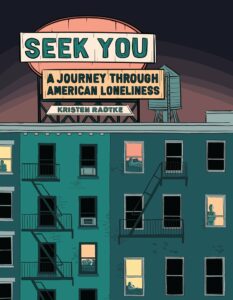
Kristen Radtke, Seek You: A Journeying Through American Loneliness
(Pantheon Graphic Library, July thirteen)
It has been one of the loneliest years in commonage homo history. In many ways, the illusions of intimacy provided us by digital convenience have rendered the physical separations of pandemic life that much harder. It's difficult to think of anyone better suited to investigate this melancholy paradox than Kristen Radtke, whose graphic narratives convey—often with boundless potency—the full range of how human confinement tin can manifest. Seek Yous a "meditation on isolation and longing, both as individuals and as a society" is the perfect framework for her fashion of visual and narrative exploration.
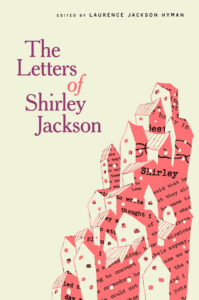
Shirley Jackson, Laurence Jackson Hyman (editor), Bernice Thousand. Murphy (contributions past), The Letters of Shirley Jackson
(Random House, July xiii)
Shirley Jackson'south son Laurence Jackson Hyman edited this collection of never-before-published letters, written over more thirty years, which requite new details on Jackson's life and writing (also, it includes some of her drawings!).
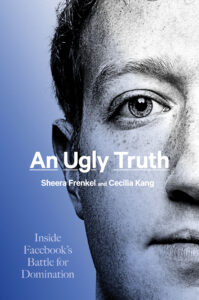
Sheera Frenkel and Cecilia Kang, An Ugly Truth: Within Facebook's Battle for Domination
(Harper, July 13)
At this point it's taken for granted that Facebook is both a bad experience for users (who give up huge amounts of data to a individual corporation for the privilege of arguing with their weird libertarian uncle) and a bad feel for the fragile experiment that is western republic. So how did that happen? Sheera Frenkel and Cecilia Kang dig deep into the last v years of the world'southward largest social network to reveal bewildering patterns of toxic factionalism, corporate cynicism, and naïve hubris at the very tiptop. At this point, is anyone actually in charge?
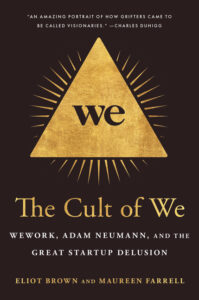
Eliot Brown and Maureen Farrell, The Cult of Nosotros: WeWork, Adam Neumann, and the Great Startup Delusion
(Crown, July 20)
Information technology'due south hard to believe the guy who sublet desks to freelancers once thought he'd become the world's first trillionaire. But that'southward the kind of deep and delusional thinking that blest the world Adam Neumann, an outsized Silicon Valley villain who seemed part cult leader, part used machine salesman—hence the title of this deeply reported inside look at gig economy opportunism run amok.
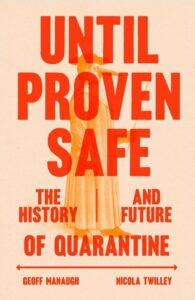
Nicola Twilley and Geoff Manaugh, Until Proven Prophylactic: The History and Future of Quarantine
(MCD, July 20)
Early during the Covid-19 pandemic we were reminded far and wide of the etymology of quarantine (Italian ships held at port for 40 days to be cleared of plague), a grim kind of isolation that many of us would come up to know far too well in the year that followed. But as Geoff Manaugh and Nicola Twilley reveal in Until Proven Safe, this kind of segregation is nothing new for the human race, which has always turned to quarantine in the face of new and unknown pestilence. And as the 21st-century brings new, weird threats (labs accidents! space plagues!) we accept to exist equally vigilant every bit ever about protecting the herd.
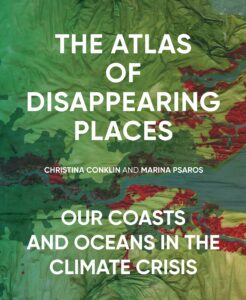
Christina Conklin and Marina Psaros, The Atlas of Disappearing Places: Our Coasts and Oceans in the Climate Crisis
(New Press, July twenty)
This unique atlas project portrays places under threat due to the climate crunch—including New York City, Houston, the Melt Islands, and Shanghai—and maps the ways they will change or disappear, unless the global community acts to stop it. Combining climate science, storytelling, and fine art, this is an undeniably cute arroyo to an important, and troubling, topic.
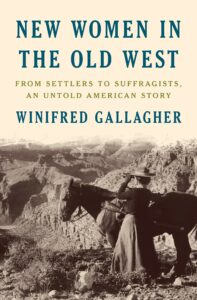
Winifred Gallagher, New Women in the Erstwhile West: From Settlers to Suffragists, an Untold American Story
(Penguin Press, July 20)
In the mid to late 19th century, a wave of white settlers established a constellation of cities in the American West where women could play a more than important role in public life than ever before. Winifred Gallagher accounts for this era in history and how the women of the West contributed to the suffragist movement, including those who were farther disenfranchised due to their race.

Terry Leahy, The Politics of Permaculture
(Pluto Press, July 20)
Permaculture is an environmentally conscious mode of interacting with the country—somewhere between farming and landscaping—that prioritizes natural processes and the wellness of endemic flora and animate being. Like many eco-frontward movements it has largely been the province of those with the land, time, and money to exercise it, a problem that Terry Leahy addresses head on in The Politics of Permaculture, which outlines the ways in which permaculture can benefit both the land and people of the global south. This is what we might phone call intersectional sustainability.

David Stebenne, Promised Land: How the Rise of the Middle Class Transformed America, 1929-1968
(Scribner, July twenty)
David Stebenne looks at the history of the 20th century from the perspective of the center class, which thrived throughout the mid-century until the political clashes of the late 1960s interrupted its growth. Promised Country is a valuable close look at a revealing period in the history of form in the Us.

Giles Tremlett, The International Brigades: Fascism, Freedom and the Spanish Civil War
(Bloomsbury, July 20)
Y'all could say the International Brigades that formed in 1936 to defend the fledgling Castilian Democracy against the fascist Loyalists were the start true manifestation of Antifa… As revealed by Giles Tremlett's full history of the brigades, all manner of socialists, communists, anarchists, liberty fighters, chance-seekers, and more than came from 61 countries to course one of the largest volunteer armies Europe had ever seen. Were they peculiarly unified? No. Did they have a mutual enemy? Yes, fascism. Even though information technology didn't work, this manifestation of sacrifice and support to a common cause remains ane of the more hopeful moments in an otherwise horrifying few decades of war and devastation.

Ilhan Omar, This Is What America Looks Like: My Journeying from Refugee to Congresswoman
(Dey Street, July 27)
Ilhan Omar'due south autobiography follows her path from a babyhood in Somalia—and subsequent stay at a Kenyan refugee camp—to boyhood in Arlington, Virginia and growth as an organizer, culminating in her ballot to Congress. Reading her unique life story is an educational activity in perseverance and the importance, and value, of community in achieving political objectives.

Rodrigo Garcia, A Cheerio to Gabo and Mercedes: A Son's Memoir by Rodrigo Garcia
(HarperVia, July 27)
The imminence of expiry can create unlikely intimacies both tender and stark, particularly between a grown kid and their aging parent. So it was for Rodrigo Garcia, the son of Gabriel Garcia Marquez, whose richly observed account of the last days of his iconic father is itself a piece of work of fine literary merit. It will always exist ane of life's savage paradoxes that we pay closer to attending to that which we are about to lose, simply in doing then in this memoir Rodrigo has gifted his father's millions of readers a shut-up view of one of the 20th century's groovy writers.
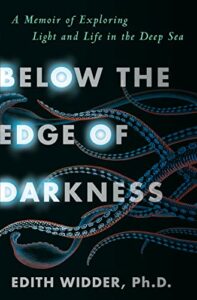
Edith Widder, Below the Edge of Darkness: A Memoir of Exploring Lite and Life in the Deep Ocean
(Random House, July 27)
Oceanographer and marine biologist Edith Widder has spent her career studying the wonder of oceanic bioluminescence. Below the Edge of Darkness blends the science of her field with stories of the run a risk of deep sea exploration, underscored with the urgency of the need for the conservation of a vast and greatly imperiled ecosystem.
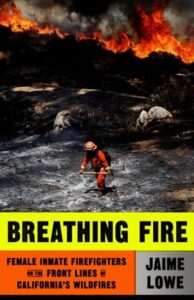
Jaime Lowe, Breathing Burn down: Female Inmate Firefighters on the Front Lines of California'south Wildfires
(MCD, July 27)
Incarcerated firefighters exercise some of the most unsafe and underpaid work in America. Here, Jaime Lowe, who covered the stories of incarcerated female firefighters for The New York Times Magazine, looks in detail at the fire army camp programs where they earn a dollar an hr doing life-threatening work that grows more than dire every year as the climate crisis continues.
____________________________
AUGUST

Elizabeth Tandy Shermer, Indentured Students: How Authorities-Guaranteed Loans Left Generations Drowning in College Debt
(Belknap Press, August three)
To be debt complimentary in America in the 21st century is to have a very item kind of privilege: as of today, 45 million Americans owe approximately ane.5 trillion dollars in higher tuition debt (that's T as in "there's no way most millennials can beget a home"). Indentured Students traces the very particular policies of the terminal 60 years that led to this situation, discovering an unsurprising reluctance by those in power to open up college educational activity to a wider group Americans (estimate who, and guess why).
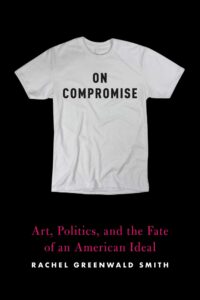
Rachel Greenwald Smith, On Compromise: Art, Politics, and the Fate of an American Ideal
(Graywolf Press, August 3)
What's the signal of compromise? Rachel Greenwald Smith interrogates what has ofttimes been an ideal of liberal politics, looking at the role information technology played in various cultural controversies and in her own personal experiences. In the process, she argues that compromise is a strategy, not a goal unto itself, and to call back of information technology as such is counterproductive to cultural growth.

Courtney E. Martin, Learning in Public: Lessons for a Racially Divided America from My Daughter'south School
(Petty, Chocolate-brown and Visitor, August 3)
When Courtney Martin enrolled her daughter at a public schoolhouse in Oakland, California, that other local white families tended to avert—often in favor of expensive individual schools—she soon began to observe the effects of multicultural learning and the complicated dynamics that govern educational activity and race in the area. This is the story of what school segregation, a nationally important consequence, looks similar through the lens of one family unit'southward experience.
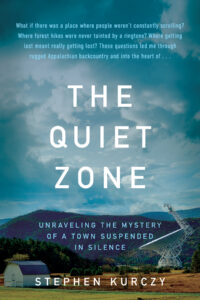
Stephen Kurczy, The Quiet Zone: Unraveling the Mystery of a Town Suspended in Silence
(Dey Street Books, August 3)
For years, Green Bank, West Virginia, has instituted a ban on digital engineering science (including consumer electronics) that could interfere with the workings of the Green Bank Observatory, which is used by astronomers and researchers. Stephen Kurczy immerses himself in this unique setting, tracing the history of a town unlike any other in the United states and its present-day relationship to digital engineering.
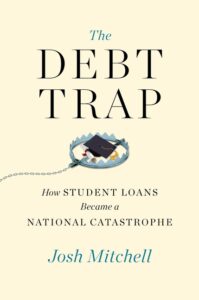
Josh Mitchell, The Debt Trap: How Student Loans Became a National Catastrophe
(Simon & Schuster, Baronial 3)
Josh Mitchell, a reporter for The Wall Street Periodical, uncovers the history of the predation that created the pupil debt industry, which has created impossible fiscal barriers for at to the lowest degree one generation of Americans and shows no signs of slowing down—a phenomenon that Mitchell likens to the housing chimera. It is, unsurprisingly, a shocking history, dominated by an attitude of exploitation toward American students and their families.

Michel Foucault, Prisons Information Group, Kevin Thompson, Perry Zurn and Erik Beranek, Intolerable: Writings from Michel Foucault and the Prisons Information Group (1970–1980)
(Academy of Minnesota Press, Baronial 3)
The Prisons Data Group was formed by French intellectuals and activists to interrogate and resist the harsh policies of the French carceral state, and included the likes of Gilles Deleuze, Helene Cixous, and Michel Foucault (the latter would develop and refine his framework of carceral criticism through his work in the group). Though "resistance" in the Trump Era became more of a brand than a battle plan, it is not difficult to see the relevance of the Prisons Information Group to the current motility for prison reform and abolition: lessons of past resistance are e'er important to the future.
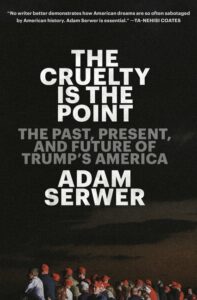
Adam Serwer, The Cruelty Is the Bespeak: Essays on Trump'southward America
(One Globe, Baronial 3)
Adam Serwer, a staff writer for The Atlantic, adds this contribution to the long process of reckoning with the Trump assistants, analyzing the dynamics and inequalities that led to his rise and examining Trump as a phenomenon that is consequent with the path of U.s.a. history. His essays expand on the furnishings of American history on the present and the possibilities of our political time to come.
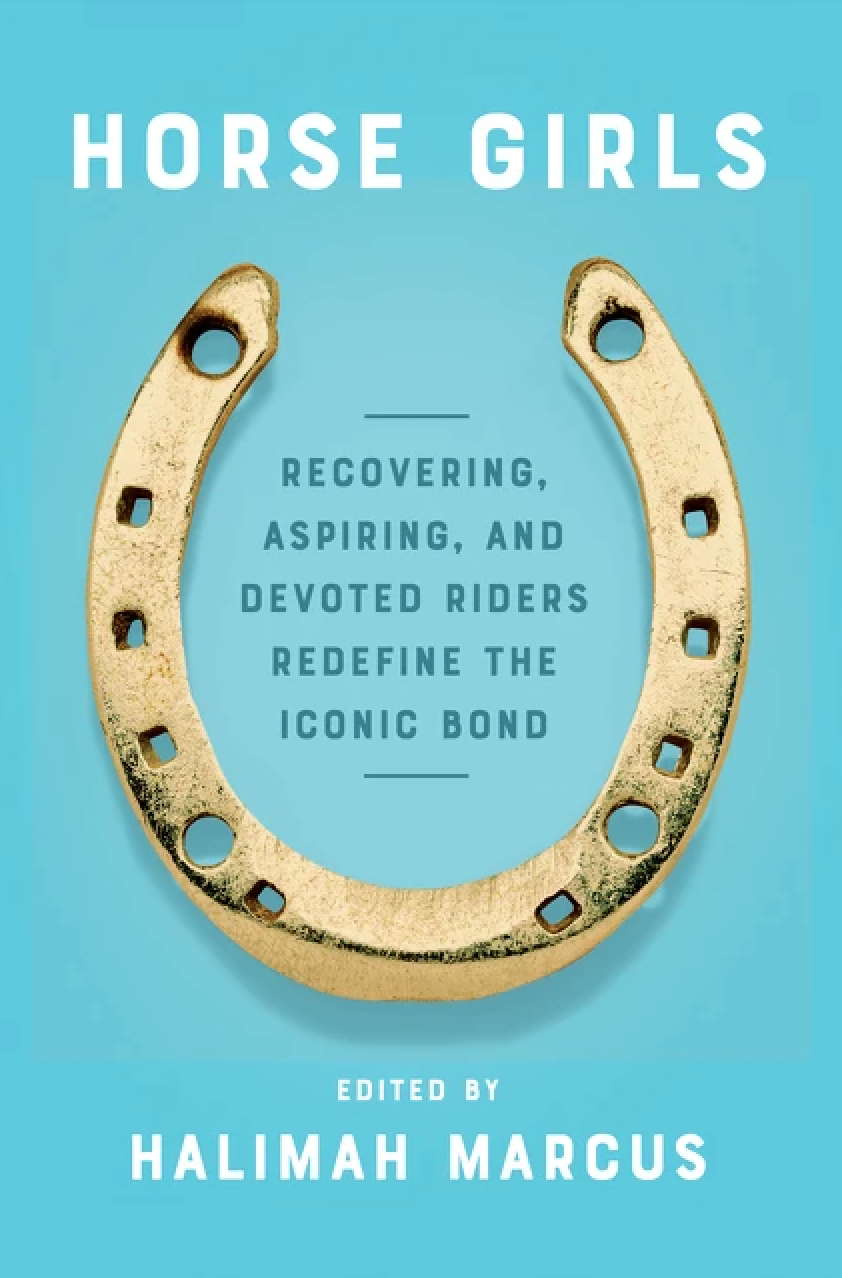
Halimah Marcus (ed.), Horse Girls
(Harper Perennial)
This is not your mother's anthology of equestrian memoir (though she'll probably like information technology): but a glance at the line-upwards of heavy-hitting writers should be plenty to tell you that, with contributions from Carmen Maria Machado, Jane Smiley, T Kira Madden, Maggie Shipstead, and many more. In offering a broad array of perspectives across culture, course, and gender Horse Girls upends the rarified stereotypes of privilege and exclusivity so often ascribed to the wealthy, white "horsey gear up."

Tom Gatti, Long Players: Writers on the Albums that Shaped Them
(Bloomsbury, August 3)
Long Players collects essays from gimmicky writers on the albums that have shaped them, and the list is impressive: Marlon James, Patricia Lockwood, Rachel Kushner, Bernardine Evaristo, and many others counterbalance in. Ben Okri writes on Miles Davis; Daisy Johnson on Lizzo; David Mitchell on Joni Mitchell. (One of these catch your attention yet?) There's a lot to connect to in this collection of stories on the moments music history meets personal history.
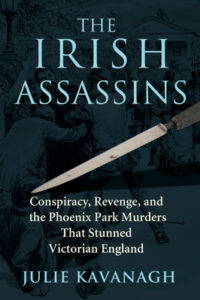
Julie Kavanagh, The Irish Assassins: Conspiracy, Revenge and the Phoenix Park Murders that Stunned Victorian England
(Grove, August 3)
Every bit true crime stories get, this one has it all: clandestine plotting, scandalous diplomacy, shadowy organizations, savage murders, far-reaching political implications, and, for good measure, someone known as "the Irish Sherlock Holmes." The twelvemonth was 1882 and British Prime number Minister William Gladstone had been making progress in backroom negotiations with pro-Irish independence leader Charles Stewart Parnell—until the roughshod murder of Lord Frederick Cavendish and Thomas Shush, Chief Secretarial assistant and Undersecretary for Republic of ireland. The 2 were cutting down in Phoenix Park past a group of American-funded hardline nationalists called The Invincibles, a crime that would become internationally notorious, and finer concluded the possibility of negotiated independence. Kavanagh's gripping business relationship of the murders is a stark reminder that history is a chaotic jumble of chance, circumstance, and opportunity, as much about what could have been as about what was.
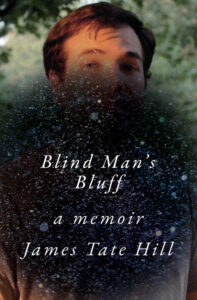
James Tate Hill, Bullheaded Man's Bluff
(WW Norton, August 3)
James Tate Hill—who writes a column for Lit Hub recommending audiobooks each calendar month—recounts his experience with Leber's hereditary optic neuropathy, which resulted in the legal incomprehension he tried to cover up for years. His memoir delves into this catamenia of his life along with the mode his human relationship with vision, and self-acceptance, evolved over fourth dimension.

Anna Qu, Made in China: A Memoir of Honey and Labor
(Catapult, Baronial 3)
Anna Qu reported her mother to child services afterwards beingness forced to work in a Queens mill as a teenager. Two decades afterward, accessing her ain report from the Role of Children and Family unit Services, she finds a number of inaccuracies. Her memoir explores her relationship to this history, her family'south immigration story, trauma, and survival through corruption.

Adam Harris, The State Must Provide: Why America's Colleges Accept Ever Been Unequal—and How to Ready Them Right
(Ecco, August 10)
Adam Harris looks at the situation in higher education, which continues to entrench stark racial and class inequalities in the U.s., examining how we got here—from crucial legal decisions on school segregation to the historical climate that oppressed Blackness students—and what problems keep us from moving forward. His account indicts a arrangement that should be upholding higher ideals of equality while too offering ideas on what must change.

Elly Fishman, Refugee Loftier: Coming of Age in America
(The New Press, August ten)
Elly Fishman captures the 2017-viii academic year at Chicago'due south Roger C. Sullivan Loftier School, tracking the highs and lows of the schoolhouse'due south refugee and immigrant student community in this thoroughly reported account. Fishman examines the concept of the American Dream in the context of the American education system with stunning clarity and insight.

Jennifer Otter Bickerdike, You Are Cute and Yous Are Lonely: The Biography of Nico
(Hachette, August x)
Jennifer Otter Bickerdike takes a shut expect at iconic Warhol muse and Velvet Underground collaborator Nico.You Are Beautiful and Y'all Are Solitary makes a strong case for Nico'due south legacy as an influential nonetheless underappreciated singer-songwriter. Bickerdike utilizes the athenaeum at the Andy Warhol Museum and at Nico's record labels, various private collections, rarely seen footage, and sectional new interviews to demythologize—and thereby humanize—the iconic German stone star.
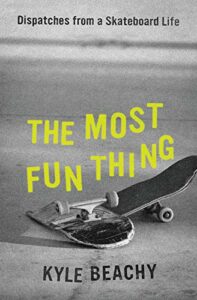
Kyle Beachy, The About Fun Thing: Dispatches from a Skateboard Life
(K Central, August 10)
There are a lot of very serious books in this preview—simply even though life has been hard for so many people over the last year, information technology's ok to accept fun. This is perhaps 1 of the more important lessons from Kyle Beachy's hybrid piece of work of memoir and cultural criticism, which examines skateboarding as a cultural miracle that has grown up aslope the punk-aligned 80s skatekids who now have teenagers of their own. What does it mean to be in one'south early forties and still non quite be able to land more than one in 4 kickflips? Why does it bring such joy? And where, exactly, is the line between counter- and corporate culture when it comes to a "sport" like skateboarding?
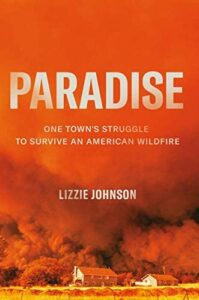
Lizzie Johnson, Paradise: I Town'due south Struggle to Survive an American Wildfire
(Crown, August 17)
The climate apocalypse has been here for awhile now, depending on where you cull to wait. For San Francisco Chronicle reporter Lizzie Johnson, that was Paradise, California, which was left devastated in the wake of 2018's Camp Fire, i of the deadliest wildfires in the nation'southward history. Assigned to embrace the breaking story Johnson had a immediate view of the town'southward destruction (85 people died) and has since put together this important minute-by-infinitesimal certificate of the consequences of climate change, based on frontline reporting, public records, and extensive interviews with survivors.
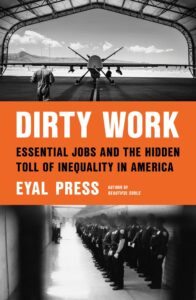
Eyal Press, Dirty Work: Essential Jobs and the Hidden Toll of Inequality in America
(Farrar, Straus and Giroux, Baronial 17)
This nation's success, such every bit it is for those at the meridian of the pyramid, relies on a veritable regular army of the underpaid and overworked to bear out the very worst kind of labor. As Eyal Press reveals in this engrossing account of terrible jobs—from manufacturing plant farms to the prison-industrial complex—American capitalism is an unsustainable system that continues to demand a barbarous cost from its workers, both physically and morally. If we call up so many of them are "essential" why can't we create improve weather for what they do?
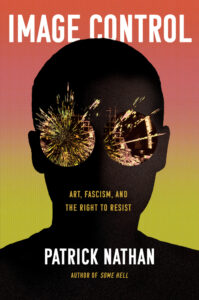
Patrick Nathan, Image Control: Art, Fascism, and the Right to Resist
(Counterpoint, August 17)
In Image Control, Patrick Nathan looks for the root of fascism, and humanity's susceptibility to it, in the aesthetics of the internet. Nathan argues that encountering images at warp speed and in isolation from their context has negatively affected our ability to assimilate nuance (a dynamic that anyone who's witnessed an argument online can adjure to). Nathan's unique work of analysis diagnoses a problem underlying many of our online interactions, ane with of import implications for both personal relationships and national politics.

William deBuys and Rebecca Gaal (illustrated by), The Trail to Kanjiroba: Rediscovering Earth in an Age of Loss
(Vii Stories Press, August 17
William deBuys'south The Trail to Kanjiroba is both the story of the author'southward journeys to Upper Dolpo, an isolated surface area in northwestern Nepal, and an assay of the scientific advances that accept helped humans interpret the natural world over the course of centuries. It is a work of shut attending to a unique landscape, the kind of story that will only abound more than of import every bit landscapes of all kinds autumn under the threat of homo-caused destruction and climatic change.
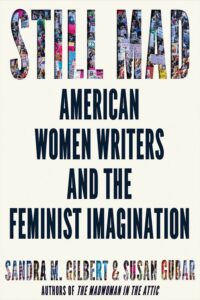
Sandra K. Gilbert and Susan Gubar, Still Mad: American Women Writers and the Feminist Imagination
(W.W. Norton, August 17)
Literary critics Sandra K. Gilbert and Susan Gubar, authors of The Madwoman in the Attic, at present expect at the legacy of literary 2d wave feminists in Still Mad, which revisits piece of work past Toni Morrison, Adrienne Rich, Ursula Chiliad. Le Guin, Maxine Hong Kingston, Gloria Anzaldúa, and others. This is a great chance to revisit some of our nigh foundational writers and thinkers.
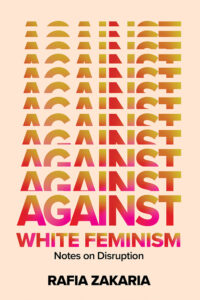
Rafia Zakaria, Confronting White Feminism: Notes on Disruption
(W.W. Norton, August 17)
The empty language of empowerment and girlbossery by which mainstream (white) feminism is disseminated has been to the detriment of the vast majority of women, and to the very idea of women's equality. Rafia Zakaria looks at the white supremacy woven throughout the women'due south movement and makes the case for the absolute necessity of a new framework.
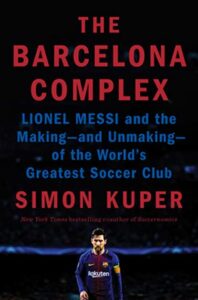
Simon Kuper, The Barcelona Complex: Lionel Messi and the Making—and Unmaking—of the World's Greatest Soccer Society
(Penguin Press, August 17)
How did FC Barcelona become the biggest, most successful sports franchise on the planet? (Pitiful, Americans, it'due south true.) Fiscal Times journalist Simon Kuper was given hitherto unthinkable access to the inner workings of this beloved institution—that's run more like a global conglomerate than a soccer club—and charts Barca's rise in parallel to the careers of two of its mega-stars, Johan Cruyff and Lionel Messi. But can Barcelona's status as global sports superpower outlive the incredible career of the latter, whose fourth dimension as the best player in the world is coming to an terminate?
Roxanne Dunbar-Ortiz, Not "A Nation of Immigrants": Settler Colonialism, White Supremacy, and a History of Erasure and Exclusion
(Buoy Printing, Baronial 24)
Roxanne Dunbar-Ortiz is not the historian America deserves, but she is definitely the historian America needs. With her customary precision and fearlessness Not a Nation of Immigrants takes aim at a persistent national myth that whitewashes the genocidal settler-colonialism and mass enslavement of Africans upon which America was built. This is exactly the kind of book white supremacists are trying to ban in schools (do don't permit them!).
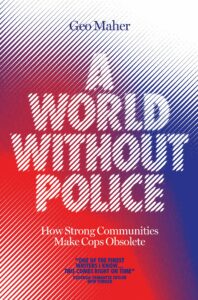
Geo Maher, A World Without Police: How Potent Communities Brand Cops Obsolete
(Verso, Baronial 24)
What would constabulary enforcement and public life look like without police force? The Black Lives Matter protests of 2020, along with the further organizing and conversations that those protests inspired, produced a blueprint for such a society, ane that Geo Maher breaks downward in A World Without Police equally he advocates for police abolitionism alongside community prophylactic.
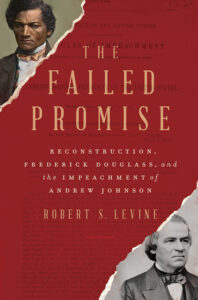
Robert Levine, The Failed Promise: Reconstruction, Fredrick Douglass, and the impeachment of Andrew Johnson
(W.Westward. Norton, August 24)
Robert South. Levine, Distinguished Academy Professor at the Academy of Maryland, provides a well-researched study of the presidency and impeachment of Andrew Johnson. Levine brings the leadership of Frederick Douglass and other African American activists into clear view, providing a detailed deconstruction of post-Civil War America that considers the failed promise of Black equality and its lasting reverberations.
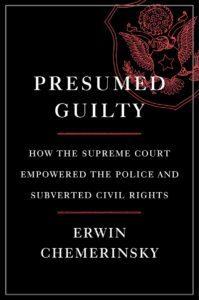
Erwin Chemerinsky, Presumed Guilty: How the Supreme Courtroom Empowered the Police and Subverted Civil Rights
(Liveright, August 24)
Erwin Chemerinsky continues his career of groundbreaking inquiry into civil rights with Presumed Guilty, which looks at the foundations of a club that tolerates racist policing. Chemerinsky finds, in particular, that a series of Supreme Courtroom decisions driven past conservative justices enabled police to take vehement, and sometimes mortiferous, actions, peculiarly against communities of color.
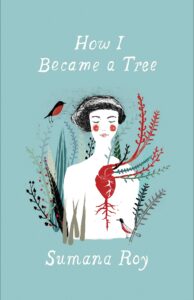
Sumana Roy, How I Became a Tree
(Yale University Press, Baronial 31)
"I was tired of speed," Sumana Roy writes, "I wanted to live to tree time." In How I Became a Tree, Roy blends literary criticism, philosophy, and botanical study to contemplate humanity'south engagement with the natural world, and consider what it ways to emulate trees themselves.
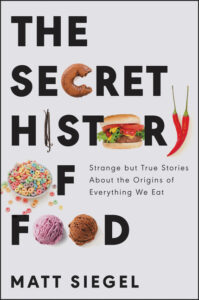
Matt Siegel, The Clandestine History of Nutrient: Foreign and Truthful Stories About the Origins of What We Eat
(Ecco, August 31)
We're likely all a footling conversationally rusty at the moment, and then a collection of surprising food histories—collected from ancient and obscure sources—sounds similar the perfect affair to liven upward your dinner party repertoire. (And if you're looking for more reasons to beloved ice cream, The Secret History of Food makes the case that in addition to being the perfect summer treat, information technology as well helped defeat the Nazis.)
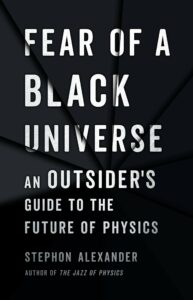
Stephon Alexander, Fear of a Black Universe: An Outsider'southward Guide to the Future of Physics
(Bones Books, Baronial 31)
Stephon Alexander, a professor of physics at Brown University and the 2020 president of the National Lodge of Black Physicists, dives headfirst into the mysteries of our universe.Fear of a Black Universe not merely unpacks the poetry of theoretical physics but also critiques the glaring homogeneity of the field. Alexander merges the personal with the scientific in this compelling guide.
Source: https://lithub.com/75-nonfiction-books-you-should-read-this-summer/
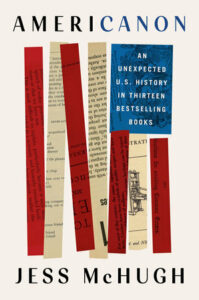
0 Response to "How to Read Nature's Fury Theme 1 (Readers Library): Houghton Mifflin"
Post a Comment